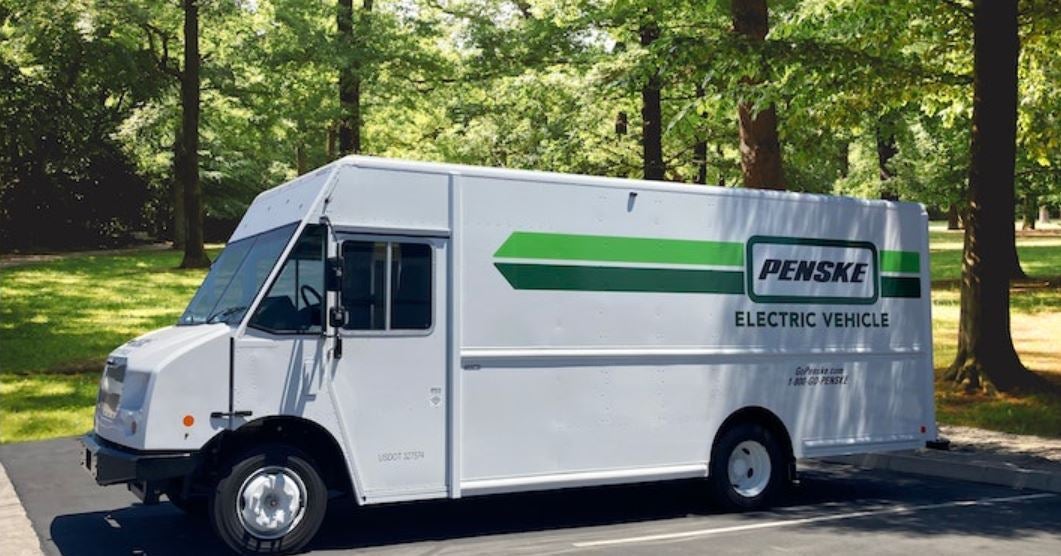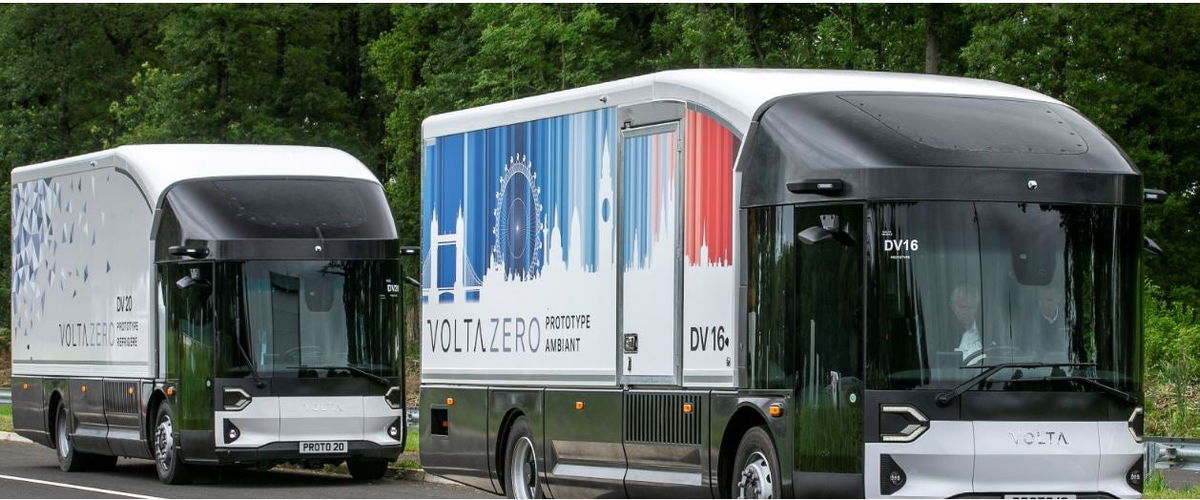Look up the word deliberation in a dictionary. It perfectly describes Paccar’s approach to trucking electrification. Sure, the company offers nine commercial electric trucks for those who want them, but there is little froth.
Paccar’s patience with electrification
de-lib-er-ate: adjective/dəˈlib(ə)rət/
done consciously and intentionally. engage in long and careful consideration.
Paccar CEO Preston Feight is nothing if not consistent when it comes to the role electric vehicles will play in his company’s near and midterm future.
“The EV market, the zero-emissions vehicle market, will just gradually grow. Customers are experimenting with it now trying to understand it, they’re buying chargers, putting an infrastructure around it,” he told Chad Dillard of Bernstein Research on Paccar’s Q4 earnings call Tuesday.
“We think it’ll be in the hundreds [of trucks annually], and it’ll stay in the hundreds for a little while,” Feight said. “And then as regulations come in, and experiences become more familiar, it’ll grow into the thousands and extend from there. We’re well positioned for that growth.”
With nine battery-electric offerings, Paccar’s Peterbilt, Kenworth and European DAF Trucks brands are in good shape. The trucks are not world-beaters in driving range between chargings — Tesla, Nikola and Volvo lead the pack — but their offerings are available now for order and qualify for California’s generous voucher program and federal Inflation Reduction Act incentives.
What’s next for fuel cells?
And what of fuel-cell electric vehicles? Kenworth has decommissioned the 10 Class 8 T680 trucks retrofitted with two fuel cell stacks used in Toyota Mirai fuel cell passenger cars. Kenworth still works with Toyota, which said in 2021 it would build a heavy-duty fuel cell stack at its plant in Kentucky beginning this year.
“What we’re doing is developing a product that’s specific for the truck market,” Feight told Jeff Kauffman of Vertical Research Partners. “And we’re doing that in close collaboration with them.”
So, watch for Kenworth to be an early customer of what Toyota is working on in the Bluegrass State.
Electrification will be the “dominant path” in coming years, and Paccar has bets on battery-electric, hydrogen combustion and hydrogen fuel cells.
“If one brings a distinct advantage to our customers, we’re ready to offer it to them,” Feight said.
Electrification may have a tough time in LTL
How well will less-than-truckload carriers fare with electric trucks? Spoiler alert: not great.
The lack of a robust infrastructure and recharging time are the twin bogeymen, but more so for LTL carriers than for their truckload brethren, my colleague Mark Solomon writes. That’s because LTL carriers operate vehicles in both local pickup and delivery and in over-the-road services.
This dual-use operation effectively keeps trucks utilized 20 hours out of a 24-hour cycle. You can read Mark’s full story posted Thursday on FreightWaves.com here.
Penske gets 2 FCCC electric chassis vans
Penske Truck Leasing is willing to give electric trucks a try. It was an early partner with Daimler Truck North America testing first-generation Class 8 eCascadias and Class 6 eM2 straight trucks, helping the OEM roll up more than 1 million miles of regional haul and pickup and delivery.
Paul Rosa, Penske’s senior vice president for procurement and fleet planning, assessed the state of electric trucks at the ACT Research seminar in August. His opinion aligns with Paccar’s Feight. It’s gonna be slow until infrastructure catches up with truck production.
Penske this week took delivery of two MT50e electric chassis vans from Freightliner Custom Chassis Corp. following the earlier receipt of two eCascadias. Both trucks went to California-based end users in the health care field.
The MT50e features a gross vehicle weight rating of up to 23,000 pounds, a range of approximately 170 miles or more on a single charge and a design with no reduction in cargo capacity.
Productwise, Rosa is a fan.
“It has proven to be a quality medium-duty addition to our customers’ operations in California,” he said in a news release.

Real revenue for startup Volta Trucks
Volta Trucks are not yet in the U.S. mix for electric-powered delivery. But the Stockholm-based startup deserves some props for real orders generating real revenue.
The full-electric commercial van maker confirmed customer production orders for the first 300 manufacturing slots of its Volta Zero that will add $92.5 million to its balance sheet.
Series production Volta Zeros are due to start rolling off the line of the company’s contract manufacturing facility in Steyr, Austria, early in the second quarter.

Tritium gets its biggest order for electric chargers
Australia-based electric charger maker Tritium has received the largest order in its 22-year history for its car and truck chargers. Don’t ask how many. Tritium isn’t saying.
But the customer is United Kingdom-based bp, which is edging away from its roots in petroleum products. The 50-kilowatt and 150kW chargers, mostly built in Australia, are destined for use by the public and fleets in the U.S., Europe and Australia as bp expands its electric vehicle charging business called bp pulse.
Separately, Tritium achieved the largest monthly production output in company history in December, with 50% more output than any previous month. The record orders were valued at $195 million for the calendar year, up 38% over the year-ago result of $141 million.
Tritium is stepping up its U.S. presence with a manufacturing plant in Lebanon, Tennessee, capable of turning out 30,000 EV chargers a year when it reaches full capacity.
Banging the drum for clean diesel
The Diesel Technology Forum tirelessly promotes clean diesel trucks in the face of an onslaught of sometimes-breathless coverage of electric vehicles. The forum knows that diesel will be the predominant trucking fuel for decades to come. But it isn’t letting up. Check out its latest infographic:
1,000 words
Briefly noted …
Kansas City, Missouri-based Orange EV, the provider of heavy-duty electric yard trucks, is expanding into Canada.
Hyliion Holdings picked up an order for 10 of its Hypertruck ERX natural gas-electric hybrid trucks from DSV Road Transport.
REE Automotive will use Microvast battery packs.
That’s it for this week. Thanks for reading. Click here to get Truck Tech via email on Fridays. And watch Truck Tech on FreightWaves TV on Wednesdays at 4 p.m. EST. Next week’s show comes live from Manifest in Las Vegas.
